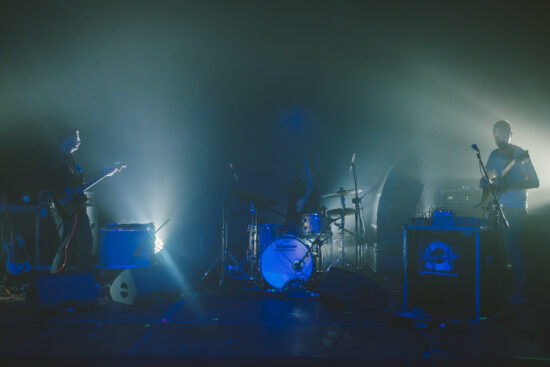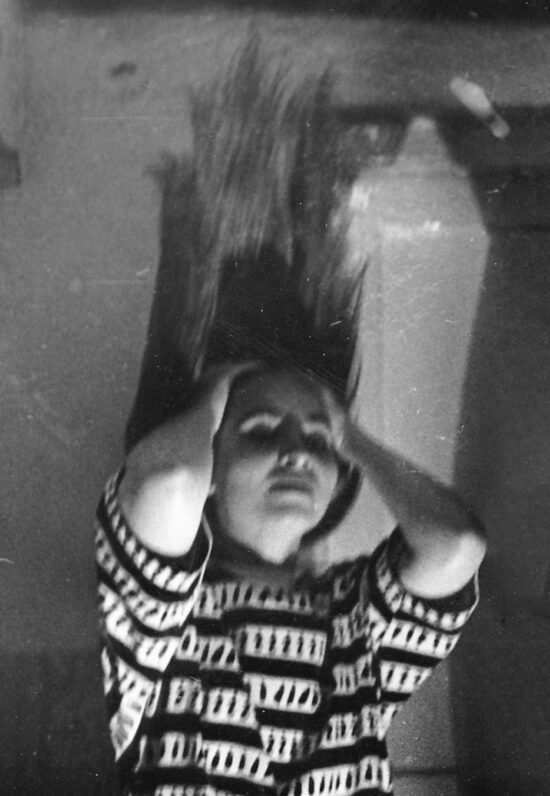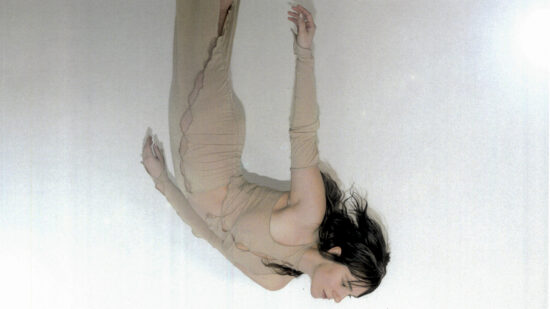Traczyk strips the bass from its lyricism; instead of looking for melodies and pleasant sounds, he opts for the heaviness. Here he is drawling out sounds and trying to tame the mighty-sounding wooden giant.
When I think about Wojtek Traczyk, I immediately hear all the projects where he participates – such as Muzykoterapia, Warszawskie Combo Taneczne, or Marcin Masecki and Gaba Kulka’s musical ventures. More often than not, these are songs where Traczyk is in the background, because theoretically that’s the role of the double bass. Yet Traczyk dispels any such myths and regularly plays with what we’re accustomed to as listeners: in 2012, he released Free Solo, with the double bass as the only instrument, two years later, on dziękuję, dobrze, he played songs with a backing band. In the meantime, he contributed to a number of line-ups (he plays also with Kamil Szuszkiewicz, Hubert Zemler, Paweł Szpura or Wacław Zimpel), until spring 2020 brought his second solo work, Runo, a fully thought-out, evocative and carefully produced piece.
On Runo, the bassist returns to the idea explored on Free Solo, but where that first record was careful, at times even conservative and conventional in terms of sound, here he goes further, boldly exploring his instrument. Where that first record was light, at times even lyrical, what we get here is a heavy, sombre and stately tone, with Traczyk pushing the double bass to its limits, as if turning it inside out. I’ve already described a similar playing style this year, with Ville Herrala’s Pu, but the scale is completely different – Pu features a collection of varied miniatures, Runo is composed of long, carefully developed compositions; fully-blooded, complex forms. Traczyk prepares his instrument, ventures into sonorism, explores the wooden soundbox. His double bass sometimes sounds like a completely different instrument: raw, dry, and deep. The opening “Big Sur” is a coarse, compulsively played and resonating drone. “Raccoon” moves close to sound-art, offering a sonic tissue where the instrument’s timbre becomes blurred, and its individual elements are hardly recognizable – when Traczyk plucks the strings, it’s like a spinning circle, uneven, coarse, sometimes getting sharper. This is supplemented by strokes of the bow, dense and powerful, like a sonic concrete mixer. The bow sounds frightfully here, as if it was ground to shreds in slow motion. This is the double bass in micro scale: Traczyk places it right next to our ears, so that we’re able to catch all the nuance in its deep and slow sound.It’s all in the detail, in the coarse, drawn out, painstakingly delivered sounds. The articulation is fascinating: the instrument sometimes sounds metallically, it’s creaking. Traczyk vivisects its huge body – he gets close to acoustic noise music, this dense layer that seems boundless. The swinging, bending strings come to the fore in “Mirror Mirror”, where the wooden, oily sound is counterpointed by noodling in the background. In turn, “Meru” – perhaps the most classical piece in terms of its form – is a mantra woven from dignified bow strokes, its wailing, repetitive sequences blending the folk with the funerary.
Runo stratifies the double bass, fighting its way through the dense structure of the instrument, compiling music from shreds, from sounds that are usually a side effect. Traczyk strips the bass from its lyricism; instead of looking for melodies and pleasant sounds, he opts for the heaviness. His playing style is in equal parts unrestrained and daring – such a personal, one-on-one contact with the instrument sparks a different approach and different emotions. Here he is drawling out sounds and trying to tame the mighty-sounding wooden giant. Runo is a complete and consistent record, and with it, Traczyk reveals his exploratory and eloquent side.
Wojtek Traczyk, Runo, Pawlacz Perski




